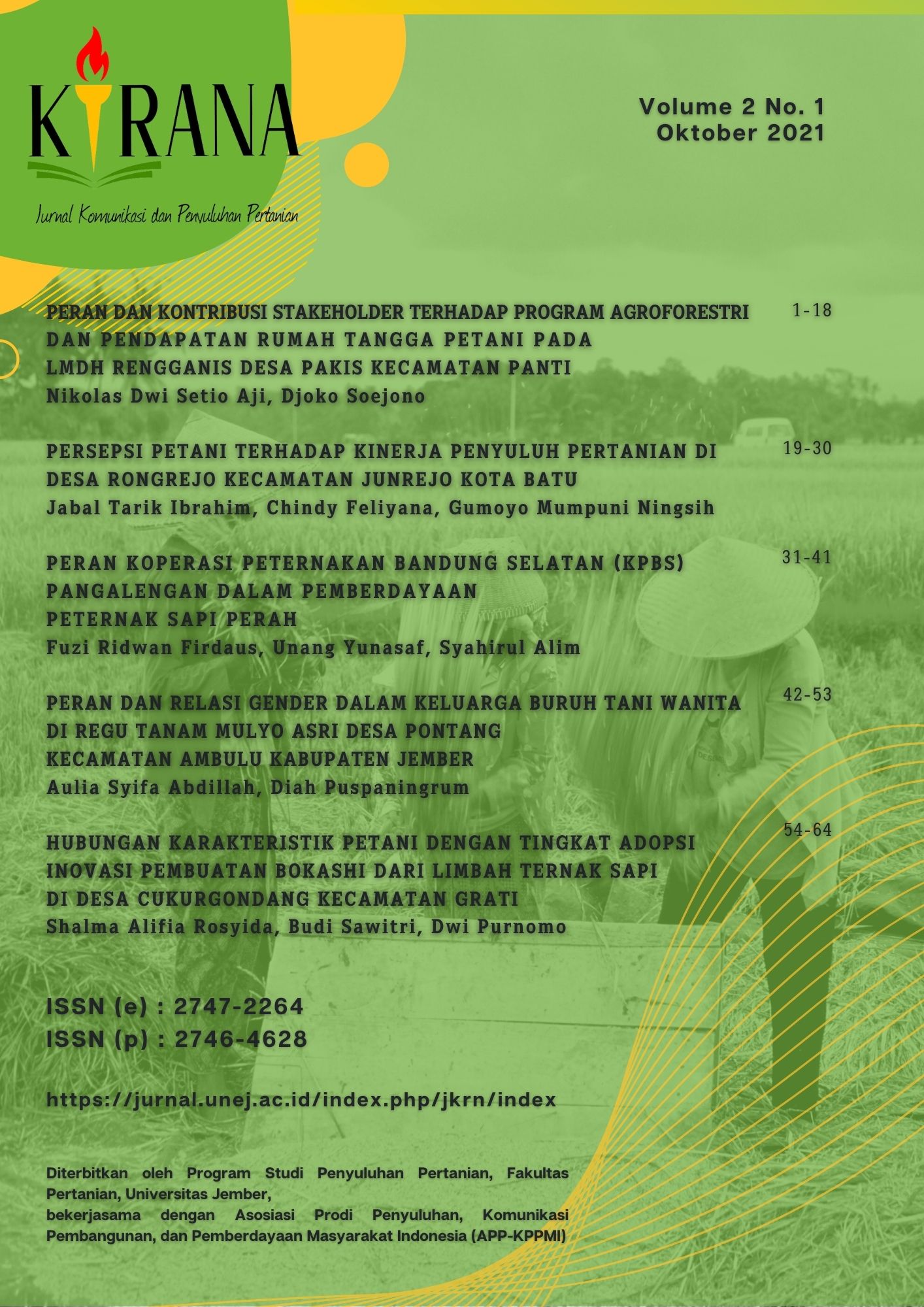Peran Stakeholder Terhadap Program Agroforestri dan Pendapatan Rumah Tangga Petani LMDH Rengganis Desa Pakis Kecamatan Panti
The Role of Stakeholders in the Agroforestry Program and Household Income of LMDH Rengganis Farmers, Pakis Village, Panti District
DOI:
https://doi.org/10.19184/jkrn.v2i1.25954Keywords:
Social forestry, agroforestry, stakeholders, role, agroforestry incomeAbstract
Forest management carried out by the Panti District community in collaboration with Perhutani is regulated through an agroforestrybased Social Forestry program. This study focuses on the role and contribution of stakeholders to the agroforestry program, the household income of agroforestry farmers and the contribution of the household income of agroforestry and non-agroforestry farmers. The research method uses analytical descriptive. The sampling method used purposive sampling and incidental sampling. The data collection method used primary and secondary data. The data analysis tool uses quantitative description, income analysis and analysis of household income contribution of agroforestry farmers. The results showed that: (1) LMDH Rengganis acts as a policy creator, coordinator, facilitator, and implementer. Perhutani has a role as coordinator, facilitator and accelerator. KLHK acts as a policy creator. SDInpres and Bank BRI have a role as a facilitator. Community Empowerment Team (TPM) as facilitator and accelerator. Cabang Dinas Kehutanan (CDK) Wilayah Jember as facilitator, coordinator and accelerator. Village government as coordinator; (2) The average income of agroforestry is Rp. 24,673,333/year and is classified as profitable; (3) The contribution of agroforestry to LMDH Rengganis farmers in Pakis Village, Panti Subdistrict is categorized as high with a percentage of 84%..
Keywords: Social forestry, agroforestry, stakeholders, role, and agroforestry income



